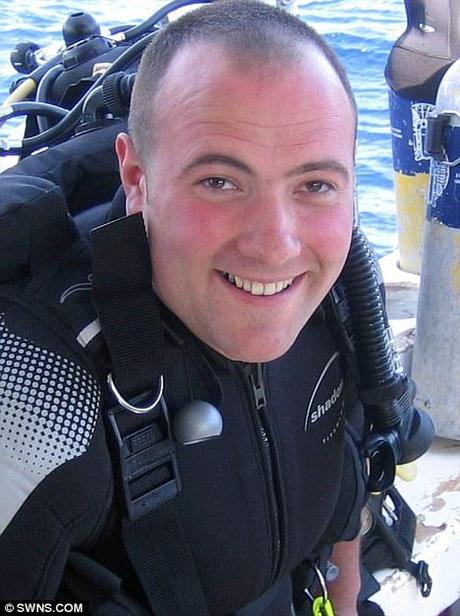In September 2011 I published a post entitled ‘…and then there was silence‘ after dealing with a particularly horrific car crash that resulted in the death of a driver who was relatively uninjured by the crash until a fire developed, taking his life before the fire service could remove him from the car.
That incident had a massive impact on me and writing the post was one of the many things that I did to come to terms with what had happened.
The following is taken from a Daily Mail article by Charles Walford and relates to the death of PC Marcus Brotherton on 2010 due to anti-anxiety medication that he was taking to combat the traumatic after-effects of a similar incident. My thoughts are with Marcus’s family, friends and colleagues as the inquest brings them closer to some degree of closure regarding their tragic loss:
A policeman haunted by the ‘black staring eyes’ of a woman he was unable to save died after taking anti-anxiety drugs he bought on the internet, an inquest heard.
Pc Marcus Brotherton, 33, was the first officer at the scene of a car crash and felt ‘helpless’ as he battled in vain to save the woman in front of onlookers. The married father-of-one blamed himself for her death and suffered terrible insomnia and crippling anxiety attacks.

The police officer, desperate to lead what his widow Katie called a ‘normal happy life’, began self-medicating with anti-anxiety drugs. But soon afterwards his wife Katie discovered his body in the bedroom of their house in Bolingey near Perranporth, Cornwall. A post-mortem examination found that Mr Brotherton had vomited while in bed and choked on the contents of his stomach. Doctors believe the medication he was taking affected his body’s reflexes and prevented him from coughing it up.
Marcus first sought help shortly after attending the scene of the accident in 2004 and was referred to the Carrick Community Mental Health Team. Consultant psychiatrist Dr Rick Bowers told the inquest in Truro, Cornwall, that Mr Brotherton had been diagnosed with post-traumatic stress disorder. He said:
‘He said he’d wake up with her black staring eyes in his mind. He felt helpless and blamed himself for her death, even though he knew that there was nothing he could have done. ‘He said he still thought about the accident most days. He would wake up covered in sweat and with his pulse racing.’
Mr Brotherton was still suffering extreme anxiety six years on and was often unable to carry out simple tasks such as picking up the phone or opening mail. Pc Brotherton died after taking anti-anxiety pills he bought on the internet
Mrs Brotherton said her husband became frustrated by the treatment received from his GP, who had been handing out medication ‘like Smarties’, and asked for a referral to a private facility. He went and saw Dr Charles Blackler, a consultant psychiatrist at the Priory Clinic in Bristol, who set a date for admission to their facility. In the meantime he continued taking medication he had purchased online. Dr Blackler told the inquest Mr Brotherton was still haunted by his memories of the accident.
He said how Mr Brotherton had told him: ‘I was left alone for a long time with the public watching. I was trying to save her but she was dead and her boyfriend was in a coma.’
Mr Brotherton was found dead on April 10, 2010, shortly before his treatment at the Priory was due to begin.
Dr Rolf Hohle, a consultant pathologist at the Royal Cornwall Hospital, said Mr Brotherton’s medication had impacted on his body’s reflexes, which otherwise might have expelled the vomit naturally.
Coroner Emma Carlyon recorded a narrative verdict.
His widow Katie described him as an
‘extremely caring, generous and hardworking person. He loved his job in the police and his cabinet-making firm. He loved diving and the beach, he was besotted with our daughter Jess. All he wanted was to get well and resume a normal happy life. After the private consultation with Mr Blacker, Marcus was a different person. He said that it felt good speaking to someone who understood what he had been going through.’
Mrs Brotherton said her husband had been frustrated by the treatment he received from his GP. Karen Murdoch, a GP at Perranporth Surgery, said the practice had done its best to support Mr Brotherton.
Inspector Mark Richards, of Devon and Cornwall Police, said he ‘resisted’ any attempt to change his duties or offers of a desk job.
This is yet another demonstration of the kind of stress and emotional trauma that Police officers deal with on a daily basis throughout the country. It’s a shame that Marcus could not be more comprehensively helped before he felt the need to resort to less conventional treatment methods. His story hit home hard in my mind.
I am thankful that I managed to get through to the other side unscathed…but also realise that this could easily have been me.

